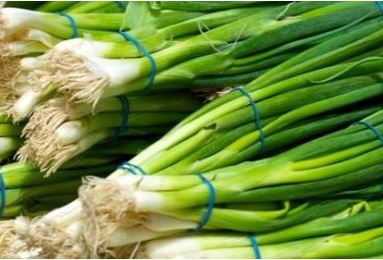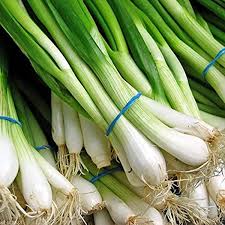When we feel hungry, we quickly put together a meal using some of the basic ingredients in our kitchen, don’t we? Are you planning to do the same for your rabbits, too? Well, it would help if you first understood what types of foods suit your bunnies, and what don’t! Yes, you heard that right.
Some foods can be toxic for rabbits, even though they are regularly used in your foods. When you don’t understand this in detail, you could be putting your rabbit’s life at great risk by giving it a diet that doesn’t suit its system. When it comes to the diet of a rabbit, many questions may arise in your mind. One of the common questions could be, “can rabbits eat green onions.” In this article, we provide you with the answer to this question, and the justification for the same.
What are green onions?
Green onions, commonly known as spring onions in many parts of the world, have long, green leaves, with onion bulbs at the end. They also have other names like scallions or sibies. The green and hollow leaves can be chopped finely and used for cooking & garnishing. The bulbs, which come in red or red, replace normal onions or pearl onions while cooking. Since they are more delicious and sweet than normal onions, green onions have a wide scope of functionality. They taste awesome when they are used for baking, frying, sautéing, grilling, etc.
Can rabbits eat green onions?
Now that we have understood what green onions are, let us address the main issue here. Can rabbits consume them? Of course, not! Onions contain toxic sulfur compounds that can result in serious health issues in rabbits. The leaves, roots, stems, and bulbs of spring onions and green onions are toxic for bunnies, and you should be careful not to include these onions in their diet.
Should rabbits stay away from green onions only or other types of onion, too?
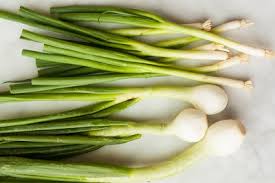
Rabbits should stay away from all onions as they contain sulfur compounds that can damage their health. Here are the most common species of spring onions that rabbits should definitely stay away from:
- Common Onions like the White Lisbon, Calcot, and cepa species
- Shallots, also known as eschalot
- Chinese Onions (also known as Allium Chinese), Chinese scallions, Japanese scallions (also known as oriental onions)
- Welsh onions are grown in the West
- Egyptian onions or tree onions
Why shouldn’t rabbits eat green onions?
Green onions and all other types of onions contain toxic sulfur-containing compounds. When these compounds are hydrolyzed and decomposed, they lead to the formation of disulfides. Disulfides are oxidants that cause oxidative stress to the rabbit’s body, by creating free radicals. These free radicals are the root cause of almost all diseases in rabbits.
What happens when rabbits consume green onions
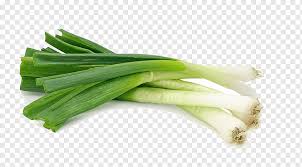
If your rabbits have consumed a small number of green onion leaves, they should be fine. However, if they have consumed the green onion bulbs in a reasonable quantity, they are likely to fall sick very quickly. You may avoid onion at all costs in your rabbit’s diet, but if your bunny friends have been eating up the onion plants in your garden, it can lead to serious health issues. Keep onions and onion plants as far from rabbits as possible.
Some of the symptoms that you should notice in rabbits when they have consumed onions for a long duration are:
- Lethargy
- Tiredness and signs of anemia
- Passing of urine that is red in color
- Sudden collapse or fainting
- Ataxia (imbalance in movement)
- Paleness of gums
- Jaundice
- Diarrhea
- Excess production of saliva
- Dryness and irritation in the mouth
- Death (if the symptoms are not spotted early)
Risks of giving rabbits green onions
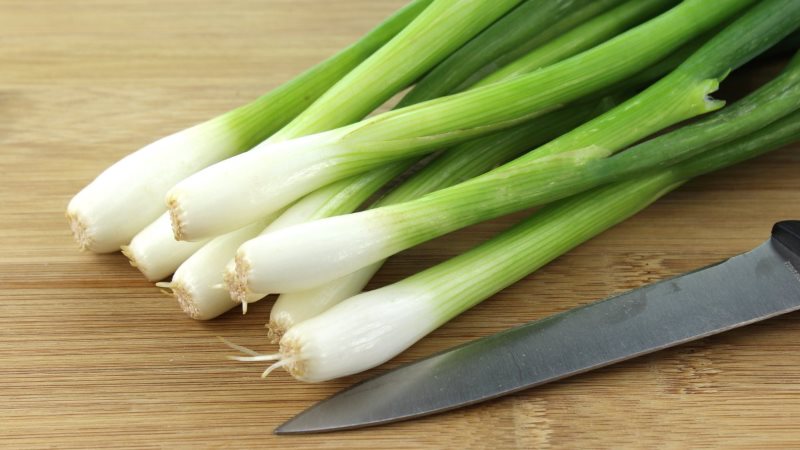
If rabbits have been consuming green onions accidentally for a long duration, they are exposed to these risks:
Hemolytic anemia
When bunnies consume scallions for a long time, they are diagnosed with hemolytic anemia, a condition where the red blood cells are ruptured or destroyed. As a result, it results in extreme lethargy in rabbits, causing them to feel dizzy and tired always. In some rare cases, if this condition is not diagnosed early, it can even lead to death. To avoid this, you should avoid all types of onions from the diet of rabbits. If you have onion plants in your garden, build a fence around them, so that bunnies can’t reach them.
Immunosuppressive effect
The toxic oxidants of onions cause an anaphylactic reaction in the rabbit’s body, because of their immunosuppressive effects. As the name suggests, this means, green onions or scallions can suppress the rabbit’s immunity system. When a bunny’s immunity system is affected, it can make the animal pale, sluggish, and tired.
Inflammations in the digestive tract
Though there are many toxic compounds in green onions, the organosulfur compound is the most toxic of them all. When rabbits consume these organosulfur compounds, they experience inflammation in their digestive tract, leading to serious gastrointestinal diseases.
Irregularities in red blood cells production
Thiosulfate, one of the most toxic compounds in green onions, causes serious health issues in rabbits. This compound brings about irregularities in the production of red blood cells in bunnies. This compound also makes the breath of rabbits smell bad.
It is important to take the rabbit to a vet as soon as these symptoms are spotted. The doctor will then take a blood test to check the level of scallion toxicity and prescribe medications accordingly. Please note that your rabbit will be fine if it has eaten only a small amount of green onions, accidentally. Most of these symptoms and serious ailments are found in rabbits that consume green onions for a long time.
Bottom Line
As you can see from the above points, rabbits should never be given green onions, as they contain toxic compounds. Please don’t mix these onions with other rabbit foods, to ensure that your pet is free from all toxicity. Watch your rabbit carefully for the symptoms mentioned above and seek medical intervention without any delay, when you spot abnormalities in your bunny friends.
